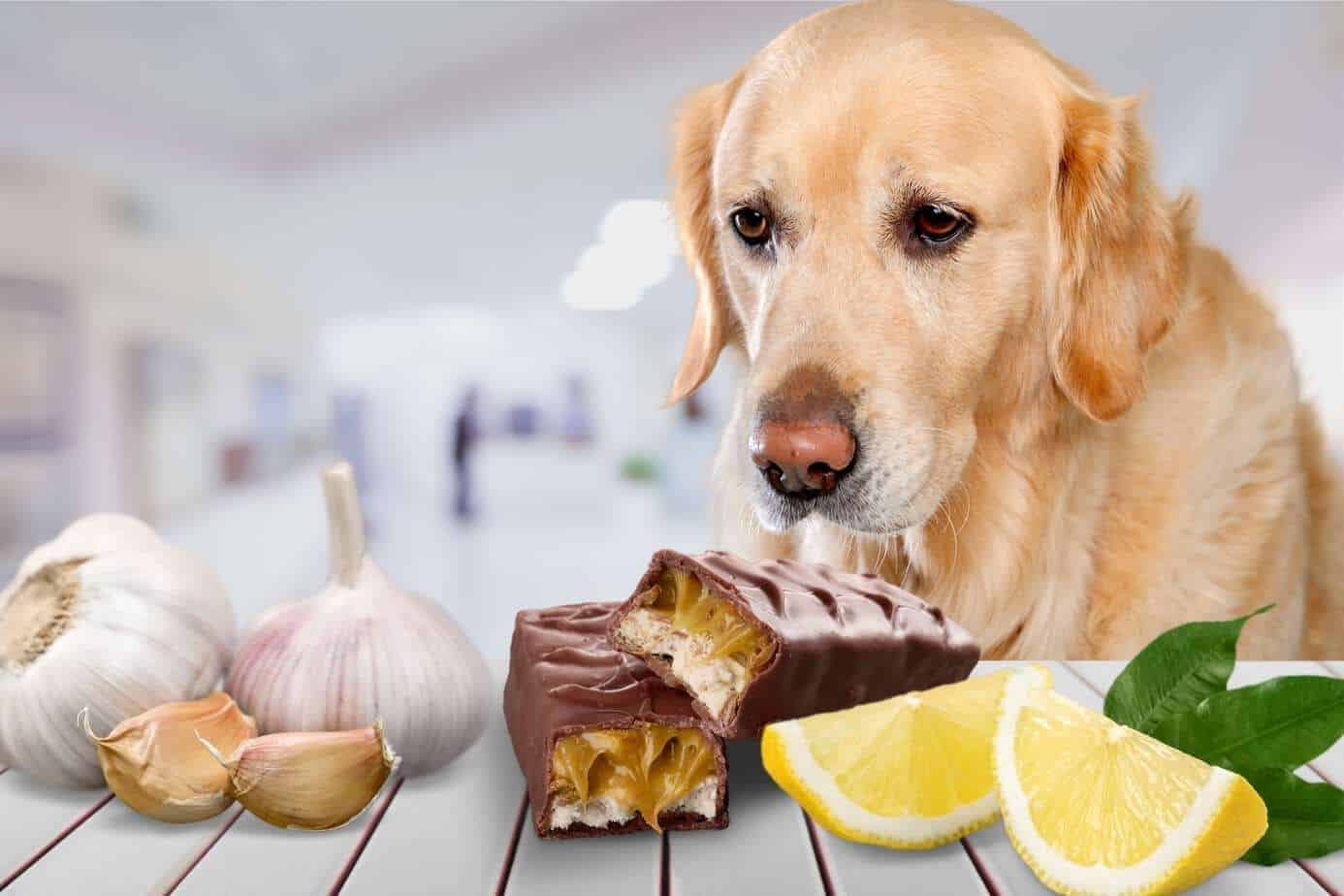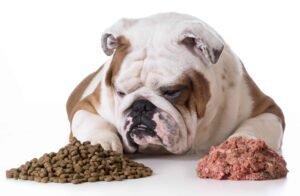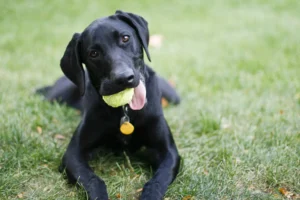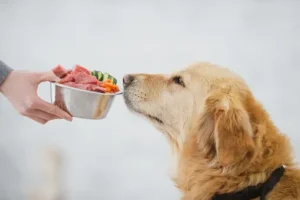Responsible dog owners must be well-informed about hazardous dog foods potentially harming our beloved furry companions. Understanding the potential risks of certain foods can help us make informed decisions regarding our dogs’ diet and health.
Some Hazardous Foods for Your Dogs
Chocolate and caffeine can be harmful to dogs. These substances can stimulate their nervous system and speed up their heart rate. Even small amounts can have severe consequences for dogs. Dog owners must understand these risks and proactively keep their furry friends safe.

Grapes and raisins can be highly hazardous to dogs, causing kidney failure, vomiting, diarrhea, and lethargy. Keeping these fruits away from dogs is crucial to safeguard their health.

Onions and garlic are highly hazardous to dogs and can cause a severe condition called hemolytic anemia. This condition occurs when the immune system destroys red blood cells and can lead to weakness, lethargy, pale gums, and even organ failure. To prevent harm, dog owners need to avoid feeding their pets any food containing onions and garlic.

Macadamia nuts are hazardous to dogs and can cause serious health issues. These nuts’ toxins affect dogs differently than humans, causing weakness, lethargy, vomiting, tremors, and increased body temperature. Even small amounts of macadamia nuts can lead to adverse reactions in dogs, which may last up to 48 hours. The high fat content in macadamia nuts can also contribute to pancreatitis, a painful and potentially life-threatening condition.

Xylitol, a sugar substitute in sugar-free products, is highly hazardous to dogs. It can cause vomiting, diarrhea, difficulty breathing, and even coma. Alcohol can also be harmful, causing central nervous system and organ damage, seizures, and an altered mental state. It’s crucial to prevent dogs from accessing any xylitol or alcoholic beverages to avoid long-term consequences.

Prevention Is Key
To keep your furry friend safe, be mindful of hazardous foods for dogs. This is essential for responsible pet ownership and a healthy relationship with your dog.
Knowing what foods are hazardous to dogs is critical to keeping them safe. This helps owners make informed choices about meal planning, treats, and table scraps. Preventing accidental ingestion of foods like chocolate, grapes, nuts, and spices is crucial for a dog’s health.
Preventive measures are crucial to keep homes safe for dogs and humans. This includes securing trash cans, storing food items out of reach, and educating visitors about not feeding dogs harmful foods. Simple steps like creating designated feeding areas and using pet-proof containers can significantly reduce the risk of accidental ingestion.
Consult Your Veternarian
Regular vet check-ups are crucial for your dog’s well-being. They help discuss dietary guidelines, allergens, and health concerns. You can tell your dog that open communication with your vet helps make informed decisions about your dog’s health.
Knowing the contact information for emergency veterinary services and animal poison control can make a difference in a crisis. Quick intervention can ensure the best care for your pet in case of accidental ingestion or toxic exposure.
Ensuring your dog’s safety around food shows love and responsibility, contributing to their health and happiness. Take preventive measures, be mindful, and act promptly to avoid the risks of hazardous foods. With some care, you can enjoy worry-free companionship with your furry friend for years to come.
FAQ
Can dogs eat chocolate?
No, dogs should never consume chocolate. It contains theobromine, which can be hazardous to them and lead to symptoms such as vomiting, diarrhea, increased heart rate, and, in severe cases, seizures.
Are grapes and raisins safe for dogs?
No, grapes and raisins can cause kidney failure in dogs. Even small amounts can be harmful, leading to symptoms like lethargy, loss of appetite, and abdominal pain.
Can dogs have onions or garlic?
No, onions and garlic contain compounds that can damage a dog’s red blood cells, leading to anemia. Symptoms may include weakness, lethargy, and pale gums.
Is it safe for dogs to eat nuts?
Certain nuts, such as macadamia nuts, can be toxic to dogs. They may cause weakness, tremors, and vomiting. Additionally, nuts pose a choking hazard and can lead to pancreatitis due to their high fat content.
Can dogs eat avocados?
Avocados contain persin, which can be hazardous to dogs in large quantities. While small amounts of the flesh are usually safe, it’s best to avoid feeding dogs avocados.
Is it okay to share my plate with my dog?
While it might be tempting, sharing your plate with your dog is not recommended. Many human foods, especially those seasoned or cooked with ingredients hazardous to dogs, can pose risks. Please be sure to stick to a balanced and vet-approved dog diet.
Can dogs eat cooked bones?
No, cooked bones can splinter and cause serious internal injuries or blockages. Please offer raw bones designed for canine consumption to promote dental health.
What should I do if my dog accidentally eats something hazardous?
Contact your veterinarian or the nearest emergency animal poison control hotline immediately. Provide details about the ingested substance, your dog’s weight, and any symptoms observed for prompt and accurate guidance.
Are there any dog-friendly alternatives to common toxic foods?
Yes, there are many dog-safe treats and foods available. Options include small amounts of plain, cooked meats, fruits like apple slices or blueberries, and vegetables like carrots. Always introduce new foods gradually and in moderation.
How can I prevent my dog from accessing hazardous foods?
Store all potentially toxic foods securely, use pet-proof containers, and be vigilant during meal preparation. Educate family members and guests about the dangers of feeding dogs human nutrition, and consider establishing designated feeding areas for your pet.




